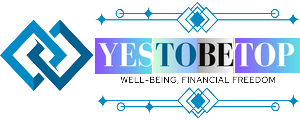Daily money stress affects the vast majority of people, with studies showing that about 73% of Americans regularly experience financial anxiety. This broad stress is more than affecting your wallet – it affects your overall health, stress, and reduces productivity. The good news is that with deliberate habits, anyone can reduce financial stress and accelerate their journey towards true financial freedom.
Financial freedom means choosing to work because you want, not because you have to change your relationship with money from one of the concerns to empowerment.
In this document, we will detect five simple but powerful habits that can help you regain your finance control. These habits manufacture each other, making better money for better money management and long-term wealth. From tracking each dollar to regular reviews and adjusting, each practice helps reduce stress and moves towards your goals. This guide is practical, actionable and easy to apply so that you can start making positive changes immediately. By adopting these habits, you will not only improve your financial approach, but will also experience more peace and confidence in your money management daily.
Table of Contents
Habit 1: Track Every Dollar (and Know Where It Goes)
The Importance of Financial Awareness and Tracking Spending
Financial control is the cornerstone of awareness. It is really necessary to know before you can make meaningful changes. Where is your money going? Tracking every dollar you spend makes a clear picture of your financial habits, revealing opportunities to save or repurpose the funds. This practice transforms your mindset from reactive to active management.
Tools and Methods for Effective Expense Tracking
There are many of equipment available to help in tracking, which are from user -friendly apps such as Mint, YNAB (You Need a Budget), And for more traditional methods, such as personal capital, manually maintaining a spreadsheet. Choose a system that is your fit Committed to style and regular updates.
Budgeting Strategies
When classifying expenses, the differences between the needs (rent, groceries, essential commodities such as utilities) and want (non -objects such as dining out or entertainment). This helps to prioritize expenses and identify areas for potential cuts. A widely recommended budget rule is the 50/30/20 Rule: to allocate 50% of your income, to want 30%, and 20% for savings and loan repayment.
Habit 2: Automate Savings (Pay Yourself First)
Turning Saving into a Habit Through Automation
Automation transforms saving from a difficult chore into an effortless habit. By setting up automatic transfers from your paycheck or checking account directly into savings or investment accounts, you ensure consistent progress without relying on willpower. This “pay yourself first” strategy prioritizes your financial future over discretionary spending.
Building Financial Security with Automated Emergency and Retirement Savings
Start by automating contributions to your emergency fund – aim to build 3 to 6 months’ worth of living expenses to protect against unexpected setbacks. Once this safety net is established, consistently fund retirement accounts such as a 401(k) or IRA, especially to capture any employer matching contributions, which are essentially free money.
Growing Wealth Consistently Through Automated Investing
Automation also lets you invest regularly, benefiting from dollar-cost averaging to reduce market timing risks. For example, automating $100 weekly deposits adds up to $5,200 annually, steadily growing your nest egg with minimal effort. By removing the temptation to spend what you might otherwise save, automatic savings help build wealth sustainably and reduce financial stress over time.
Habit 3: Create a Debt Payoff Plan (and Stick to It)
Understanding and Prioritizing Different Types of Debt
Debt often causes the most anxiety and financial pressure. Tackling it strategically frees up cash flow and reduces stress. First, understand the types of debts you carry4high-interest credit card balances typically require immediate focus, while low-interest debts like some student loans or mortgages may be managed more gradually.
Effective Debt Repayment Strategies and Negotiation Tactics
Two popular payoff strategies are the snowball and avalanche methods. The snowball method prioritizes paying off smaller balances first, generating small wins and motivation. The avalanche method targets debts with the highest interest rates first, saving more money in interest over time. Beyond payment plans, explore negotiating lower interest rates or consolidating debt into a single loan with a lower rate. These approaches can reduce monthly payments and the total interest paid.
Preventing New Debt Through Practical Spending Controls
To avoid accumulating new debt, implement practical habits such as cutting up credit cards or temporarily freezing them in ice blocks. This physical barrier serves as a reminder and helps break emotional or impulsive spending cycles.
Habit 4: Set Clear Financial Goals (and Visualize Success)
The Importance of Well-Defined and SMART Financial Goals
A well-defined financial goal guides your decisions and fuels motivation. Use SMART norms to make your goals specific, achievable, obtainable, relevant, and time-bound. Clear targets prevent targetless expenses and help track progress effectively.
Balancing Short-Term and Long-Term Financial Objectives
Differentiate between short -term goals such as paying credit cards and buying retirement such as long -term goals or houses. This multi-level target-determination focuses on both immediate requirements and future protection.
Maintaining Motivation Through Visualization and Milestone Celebrations
Views such as a vision board or a digital reminder serve as powerful motivators. Display pictures or notes that you often see, representing your goals at places, reinforcing your commitment daily. Celebrating milestones is equally important. Accepting progress, no matter how small it is, reinforces positive habits and gives momentum to your final financial freedom.
Habit 5: Regularly Review and Adjust (Stay Flexible)
The Importance of Regularly Updating Your Financial Plan
Financial plans should be living documents that evolve with your life circumstances. Changes in income, unexpected expenses, or new opportunities all require you to periodically reassess your budget and goals. Regular reviews4monthly or quarterly4ensure your strategies remain relevant and effective.
Adapting Your Financial Strategy with Flexibility
During reviews, analyze spending patterns, adjust savings rates, and revisit debt payoff timelines. Flexibility allows you to accelerate certain goals or dial back when necessary without feeling derailed.
Seeking Professional Help and Building Confidence Through Adaptive Planning
If you find managing finances overwhelming, consider consulting a financial advisor. Professional guidance can provide personalized insights, optimize your strategy, and help navigate complex decisions. Embracing this adaptive approach to money management reduces stress by fostering confidence that you can handle any financial situation that arises.
Real-Life Examples: Stories of FinancialTransformation
Understanding practical applications of these habits can inspire and motivate. Consider the story of a single mother who eliminated $10,000 in credit card debt within two years by diligently tracking expenses, automating savings, and using the avalanche debt payoff method. Her financial freedom restored confidence and reduced daily stress.
A young couple saved for a down payment on their first home by setting clear financial goals and prioritizing needs over wants. They tracked every dollar, automated monthly transfers to a dedicated savings account, and celebrated milestones like reaching 25%, 50%, and eventually full down payment funds. A recent college graduate began investing early by paying herself first, contributing consistently to retirement and brokerage accounts. Her discipline in reviewing and adjusting her plan each year allowed her to build a sizable nest egg, setting up a secure financial future.
Tools and Resources: Maximize Your Financial Potential
Personal finance navigation is easy with the right tools at your disposal. Highly recommended apps include Mint, YNAB, and Personal Capital for budget and investment tracking. These platforms provide detailed insights and help automate financial tasks. If you prefer structured teaching, many free online courses and workshops focus on budget, savings, and investment fundamentals. Coursera, Khan Academy, and local community centers offer platforms such as these resources. Books and podcasts are invaluable to deepen financial literacy and provide ongoing inspiration. Notable titles include Total Money Makeover by Dave Ramsey, which emphasizes debt eradication and budget, and psychology, Morgan Housel’s search for money, behavioral finance, and decision making.
Common Pitfalls to Avoid (and How to Overcome Them)
Even with the best intentions, many people fall into a common financial trap that increases stress and debt. Emotional expenses, such as impulse purchases or retail therapy, may be less than stopping and setting a strict budget. Lifestyle inflation – increases spending in the form of increasing income gradually – reduces savings efforts. Maintaining habits to spend manmouji and automate savings helps to combat this trend. Neglect of retirement savings in favor of immediate satisfaction ends long-term security. Giving priority to the accounts of retirement ensures development and peace of mind later in life. Comparing yourself to others, often called “keeping up with the Joneses”, leads to unnecessary financial pressure. Focusing on personal goals and financial well-being instead promotes a healthy attitude towards wealth and happiness.
Conclusion: Your Path to Financial Freedom Starts Now
Adopting the five simple habits mentioned – tracking every dollar, automation of savings, making a loan payment plan, clearly set Financial goals, and regularly reviewing your finances – creates a powerful structure to reduce money stress and create money. Their cumulative impact gives you the right to control your financial future. The biggest change comes from a mentality innings, with an anxious scattering, thinking of an abundant mentality, Opportunity, and development. This change makes the management of wealth instead of fear. Take the first step towards financial freedom today. Start keeping an eye on your expenses or set an automatic savings transfer. Small, coherent action gives intensive results over time. Benefits are beyond the dollars and cents: Better health through low stress, a strong relationship through low stress, and more peace of mind to know that whatever you are ready for, you are ready for you.




